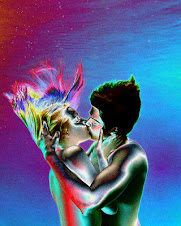In reading Conclusion: The Two Futures: A.F. 632 and 1984, one can note the similarities between 1984 and Brave New World. This is expressed simply and accurately through examples from the texts, the opinion of the author, and outside sources. As a lay reader, one can draw comparisons while reading these two books. This article scrapes deeper into the crust of thinking and enlightens the reader about truth.
I appreciate the analogies of Beethoven and The Beatles, and Shakespeare and Noel Coward. The reference to two contrasting, well-known artists provides insight into the text that will follow. This description also provides an easy way to understand the author's analysis of a whole truth. He quotes Huxley's Music at Night, expressing that all contemporary authors 'of significance... prefer to state the Whole Truth' (118). This whole truth is expressed to be present in both Brave New World and 1984 (although the author contests that "Brave New World is too small in compass to sate satisfactorily the whole truth") (118).
I found it interesting that Huxley was moved by Orwell's novel, 1984. Huxley comments on the novel's ruling minority as possessing 'sadism which has been carried to its logical conclusion' in removing sex from the equation (119). It is comforting to see Huxley extend his opinion on 1984
because of the similar nature of the novels. This communication shows that Huxley was not entirely sure of himself and his assertions. The most interesting part about this is that no letters written by Orwell are found. One is left wondering if Orwell shared the ambitions to discover these truths as Huxley.
This article also discusses Zamyatin's novel, We, and how it most likely influenced Huxley. One notices the affect that works have on other authors. Zamyatin has most likely influenced Huxley, as Huxley has influenced Orwell. This process of gaining influence from the talents or ideas of others is a constant and cyclical process. When one responds to the ideas of another, the original person has the opportunity to rebuttal or concur. Huxley, however, defies the misconception that he was influenced by Zamyatin, in saying that he had not read We (122). This point shows that similar ideas may float through the heads of people. Orwell looks foolish in accusing Huxley of plagiarism. He opens the doors for catapults of rotten vegetables with his idea that he did not plagiarize, but another did.
Although both Brave New World and 1984 contain biblical allusions, the difference in the endings of the novels present the most striking comparison. John, The Savage, dies a sacrificial death (alluding to Christ), while Winston dies emotionally by giving into The Party (or the Satanic O'Brien) (127). These two contrasting fates show different opinions on religion, but more importantly, express the possible outcomes of people who try and be individuals in a cut and dry, one way, society. Regardless of whether or not the authors gained insight from others, the message is powerful. Through different characters and situations, one can witness the potential of similarly deadly, but not identical, worlds.
Sunday, April 27, 2008
Subscribe to:
Post Comments (Atom)



1 comment:
I assumed that '1984; plagiarised 'We'.
How can this not be the case with two novels which share so many similarities?
Post a Comment